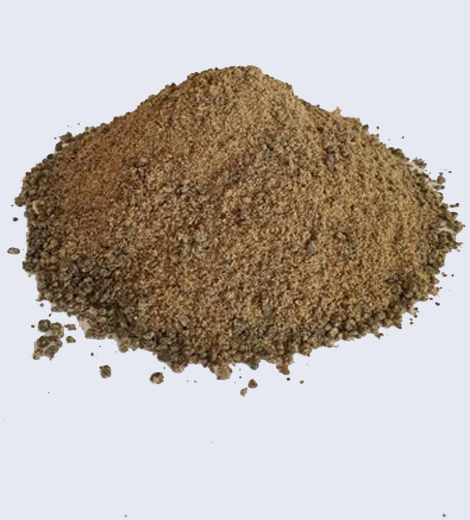
Mustard DOC
Mustard DOC, or Mustard De-Oiled Cake, is a byproduct obtained during the extraction of mustard oil from mustard seeds. It is primarily used in various applications, including animal feed and as an organic fertilizer.
Mustard DOC is produced during the extraction of mustard oil from mustard seeds. The oil is commonly used for cooking and various culinary purposes.
After the oil is extracted, the remaining material, which includes crushed mustard seed residue and some residual oil, is processed and dried to create mustard DOC.
Animal Feed: Mustard DOC is primarily used as an ingredient in animal feed, especially for livestock, poultry, and aquaculture.
Livestock and Poultry: It is used in diets for cattle, swine, poultry, and other farm animals to provide a source of protein and essential nutrients.
Aquaculture: Mustard DOC can be included in fish and shrimp feeds to supply essential nutrients and promote growth.
Soil Amendment: In agriculture, mustard DOC can be used as an organic soil conditioner and fertilizer. It provides nitrogen and organic matter to the soil, improving soil fertility.
Biofumigation: Mustard DOC can also be used in a process called biofumigation. When incorporated into the soil, it releases bioactive compounds that can help control certain soil-borne pests and diseases.
Protein and Nutrients: Mustard DOC is valued for its protein content and nutrient composition, making it an economical source of nutrition for livestock, poultry, and aquaculture.
Sustainability: Utilizing mustard DOC in animal feed and agriculture helps reduce food waste by making use of the byproduct of mustard oil extraction.
Organic Fertilizer: When used as a soil amendment, mustard DOC can improve soil structure and fertility, promoting healthy plant growth.
Protein-Rich: Mustard DOC is valued for its high protein content, typically containing around 35% to 40% protein. It provides essential amino acids.
Fiber: It also contains dietary fiber, which can be beneficial for animal digestion.
Minerals: Mustard DOC contains essential minerals, including phosphorus and potassium.
Low Fat: While it is a byproduct of oil extraction, mustard DOC has significantly lower fat content compared to whole mustard seeds or mustard oil.
Quality Control: The quality of mustard DOC can vary depending on factors such as the source materials and processing methods. Quality control is essential to ensure safety and nutritional consistency.
Anti-Nutritional Factors: Mustard DOC, like other oilseed meals, may contain some anti-nutritional factors, such as glucosinolates and tannins, which can affect nutrient absorption and animal health. Proper processing and detoxification methods may be necessary.
Regulations: The use of mustard DOC in animal feed and agriculture is subject to regulations and guidelines in many countries to ensure safety and quality.
Mustard DOC is a protein-rich and nutrient-rich byproduct of mustard oil extraction, commonly used in animal nutrition, including livestock, poultry, and aquaculture. It can also be used as a soil amendment in agriculture to improve soil fertility and as a biofumigant. Proper sourcing, processing, and quality control are important to ensure its safety and nutritional value.
